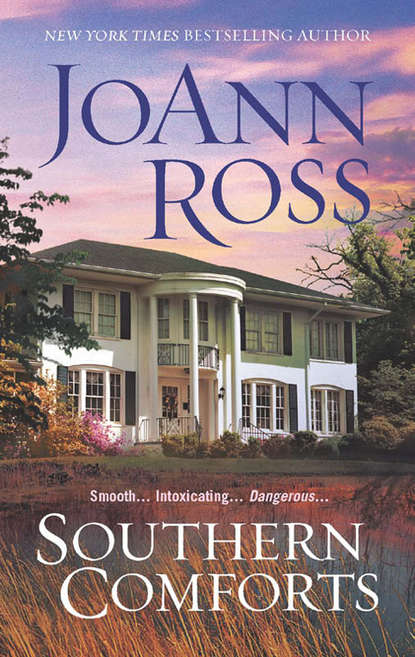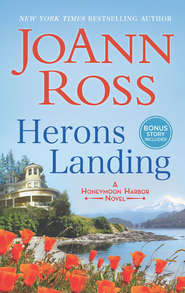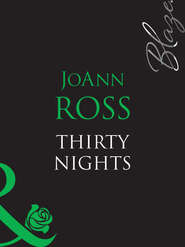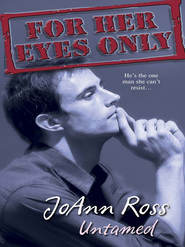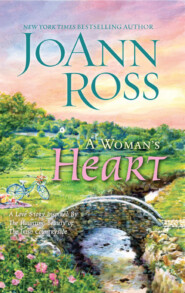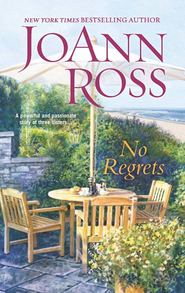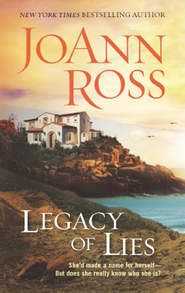По всем вопросам обращайтесь на: info@litportal.ru
(©) 2003-2025.
✖
Southern Comforts
Автор
Год написания книги
2018
Настройки чтения
Размер шрифта
Высота строк
Поля
Chapter Eighteen (#litres_trial_promo)
Chapter Nineteen (#litres_trial_promo)
Chapter Twenty (#litres_trial_promo)
Chapter Twenty-One (#litres_trial_promo)
Chapter Twenty-Two (#litres_trial_promo)
Chapter Twenty-Three (#litres_trial_promo)
Chapter Twenty-Four (#litres_trial_promo)
Prologue
1989
It was a night made for romance. Outside the ballroom of the Hillcrest Country Club, sparkling stars filled the night sky like diamonds scattered over a jeweler’s black velvet cloth. Music drifted on air perfumed with the scent of lilacs, accompanying the soft sighs and whispers of lovers who’d slipped away to steal kisses in the shadows of spreading chestnut trees.
Inside the ballroom, seated at a damask-draped table, Chelsea Cassidy watched her cousin, Susan Lowell, dance with her groom.
The bride was, as brides are supposed to be, beautiful. She also looked as if she were dancing on air.
“I still don’t understand.” Chelsea’s date, Nelson Webster Waring, complained for the umpteenth time that night. He shook his head as he cut into his prime rib. “Why did you feel the need to actually have your name on that tacky story?”
For the umpteenth time that night, Chelsea tried to explain. “In the first place, I don’t consider it a tacky story—”
“A woman baring her breast in public?” Nelson arched a patrician brow that reminded Chelsea too much of the way her mother had looked at her so many times over the years.
“To feed her child, Nelson.” A champagne bottle, nestled in ice cubes in which pink rosebuds had been frozen, awaited the wedding toast. Tempted as she was to open the dark green bottle, Chelsea reached instead for her water goblet, only to have it taken away by a tuxedo-clad waiter.
“The woman unbuttoned her blouse to feed her infant daughter,” she said. “As women have, thank God, been doing since the beginning of time.”
“Hopefully not in public parks.” He took another bite, annoying her further by chewing his usual ten times, as he’d been taught by some nanny. Chelsea wondered if Nelson would actually choke to death if he swallowed the damn piece of meat after only six chews.
“Kathy Reed pays taxes.” Chelsea snatched the refilled glass from the waiter’s hand before he could return it to the table. “That makes her the public.”
She took a long drink of ice water she hoped would help calm her. It didn’t. “Which, in turn, makes it her park. And it wasn’t as if she tore off her clothes and went skinny-dipping in the fountain, Nelson. She was behaving quite discreetly. People didn’t have to look.”
“We’re getting off the point.” His own irritation beginning to show, he stabbed a piece of potato. “The issue is not whether the woman’s behavior was proper. The issue is why you insisted on having your name linked with hers.”
“Because I’m a journalist.”
“You’re merely an intern at the Register,” he re-minded her.
“I start getting paid next week. When I begin working full-time.”
“As a Sunday lifestyle reporter. Which doesn’t exactly put you on a par with Woodward and Bernstein.”
“Thank you for pointing that out to me.”
He appeared unmoved by her sarcasm. “Why can’t you cover the summer social season?”
“The job of society reporter’s already filled. Besides, covering weddings and yacht regattas would bore me to tears. I want to write important stories, Nelson.”
“Like that unsavory date-rape series?”
“That unsavory series, as you call it, received a great deal of national attention, Nelson. I’d hoped you would be proud.”
“Of course I’m proud of you.” He lifted his gilt-rimmed coffee cup, signaling for a refill. “That goes without saying.”
Exchanging the water pitcher for a sterling pot, the waiter obliged. When his mocking dark eyes met Chelsea’s, she glared at him.
“But if you’re going to insist on writing about such distasteful topics,” Nelson continued, oblivious to Chelsea’s silent exchange with the dark-haired man standing behind him, “couldn’t you at least use a pen name? Like George Eliot?”
“Pseudonyms are for fiction writers.”
“Honestly, Chelsea, I don’t understand why you can’t be like other women. Like your mother. Or mine.”
Nelson’s mother was, if possible, even more rigid than hers. Margaret Waring clung to the old WASP belief that there were only three times a woman should have her name in the paper: when she was born, married and died.
Chelsea sighed. “I know.”
“Know what?”
“That you don’t understand.” She stood up and placed her napkin on the table. “Excuse me. I need to freshen up.”
The women’s lounge was deserted, allowing Chelsea the chance to try to regain her composure. During the past four years, while working hard at her studies, along with writing for the Yale Review, she’d managed to build a lucrative freelance career working as a stringer for a syndicate providing news copy and interviews for a group of small weekly papers along the eastern seaboard. If all that wasn’t enough to keep her busy, she’d also talked her way into an intern job on the local New Haven Register.
And then a close friend had made the mistake of getting drunk at a party after the annual Harvard-Yale football game.
The series of date-rape articles Nelson found so objectionable had not been easy to write. Many of the victims had suffered feelings of shame and guilt and it had taken Chelsea time to convince them that only by bringing the issue to the bright light of day could the stigma be burned away.
Although the intensely personal interviews had definitely not been popular with her mother or Nelson, they had been met with ego-boosting approval on campus and won her the offer for a full-time position at the Register after graduation. They’d also been picked up by a few weekly papers around the country, technically establishing her as a national journalist.
Which was, Chelsea thought as she dried her hands and began energetically brushing her hair, a pretty good start for someone who’d just graduated from college. Her famous father, Dylan Cassidy, had been a year older—twenty-two—before he’d gotten his first national byline.
She left the lounge and was walking down the hall on her way back to the ballroom, when, without warning, a hand reached out of a doorway, snagged her wrist and pulled her into a narrow dark room.
Before she could utter a word of protest, her mouth was covered by another in a deep, punishing kiss that literally took her breath away.
There was no light in the room, which, from the scent of disinfectant, she realized was a janitor’s closet. Since her eyes had not adjusted to the dark, she could not see the man whose lips were grinding against hers.
But Chelsea didn’t need to see. Because she had everything about him imprinted on every inch of her mind and body. It was as if she’d been bewitched by some black magic, she thought wildly, as she dragged her hands through his dark hair and pressed her body even tighter against his. From the first day Cash Beaudine had shown up in her dining hall, hired to bus tables at mealtimes, she’d fallen under his spell.
Unlike any of the boys she’d grown up with—boys groomed from infancy to take their places in boardrooms all over America—Cash was a rebel. He was Heathcliffe, James Dean, Billy the Kid and Butch Cassidy all rolled into one dark, dangerous, smoldering package.
Other than the fact that he was from the South and was attending the college of architecture on a work-study scholarship, Chelsea didn’t know very much about him. She had no idea about his family background, what religion, if any, he practiced, or his political affiliation. Their relationship was not based on any high level of communication.





